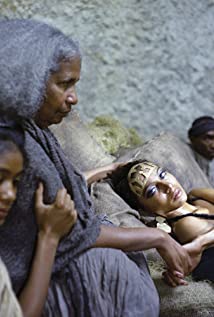The world's first black supermodel, Luna was born Peggy Ann Freeman was in Detroit and grew up there in the northeast side of the city. Her father, Nathaniel Freeman, worked for almost 40 years at Ford Motor Company, usually in the foundry. Her mother, Peggy, was receptionist at the downtown YWCA for almost 30 years. Her parents had a difficult relationship and her father tended to be somewhat abusive, often living separately from the rest of the family. He was an alcoholic and came home in a drunken rage one night in 1950 and attacked her mother, who shot him in self-defense while five-year-old Luna and her four-year-old sister Deborah looked on. Although her mother wanted her to go to nursing school, aspiring actress Luna was allegedly spotted by New York photographer David McCabe walking around - barefoot, in a Catholic schoolgirl's outfit - at Detroit's Fisher Theater in September 1964. She soon moved to New Jersey and lived there with her aunt while her career took off in nearby New York City.Luna was black per her birth certificate but denied it was valid and claimed her mother was Mexican, married a Mexican man named Luna, and that her grandmother was Irish and had married a black interior decorator. Although none of this held up to any active scrutiny, with her exotic looks, she quickly rose to fame in the modeling world with Harper's Bazaar featuring a sketch of her on the cover of its January 1965 issue. Having an exclusive contract with famed Harper's photographer Richard Avedon, the April issue that year had a six-page feature of Luna that caused advertisers in the south to pull advertising, with some readers actually canceling subscriptions. After this, the magazine refused to show any more photographs of her. Her career had suddenly come to a halt and in December of that year, she moved to the more progressive climate of London. An article titled "The Luna Year" in the April 1, 1966 edition of Time Magazine, even states that "A month after hitting New York, she married a young actor, divorced him after ten months, and now will not even give his name. Unhappy with that world but unwilling to give it all up and head back to Detroit, she fled to London and Paris last December." However, that same article called her "unquestionably the hottest model in Europe at the moment."In London, she was photographed by the great European fashion photographers of the time, including David Bailey, William Klein, Helmut Newton, as well as American music photographer William Claxton. Claxton introduced her to famed artist Salvador Dalí, who called her "the reincarnation of Nefertiti." In March 1966, Bailey captured her in a famous cover photograph for British Vogue and she became the first black model to grace its cover. Racial progress was slow, even in Europe, and that same year, she became the first black model to grace the cover of British Vogue Magazine. However, the photo showed her hand covering nearly her entire face except for one of her eyes, accented with very bold eyeliner. This was done for fear of the reaction of the magazine's readers at the time. Ashamed of her heritage, Luna often wore blond wigs and green contact lenses. A 1968 article in the New York Times was titled "Luna, Who Dreamed of Being Snow White," and called her "secretive, mysterious, contradictory, evasive, mercurial, and insistent upon her multiracial lineage - exotic, chameleon strands of Mexican, American Indian, Chinese, Irish, and, last but least inescapable, Negro."Despite widespread discrimination in the south and other regressive areas, the striking, six-foot Luna had a presence that did not go unnoticed by men or women. After her success in London, she traveled back to America occasionally for assignments and in 1966, at a New York nightclub, former First Lady Jacqueline Kennedy came up to Luna and said, very simply, "You are very beautiful." Over the next couple of years in Europe, Luna's career soared and by 1968, she was a full-fledged celebrity with many friends in the fashion, film and music industry. She became a companion of Brian Jones of The Rolling Stones and appeared in their 1968 film The Rolling Stones Rock and Roll Circus (1996), and in films by Andy Warhol and Federico Fellini as well. She kept company with celebrity friends such as Mick Jagger, Michael Caine, Julie Christie, and Yul Brynner among them. She was a fixture in the "swinging sixties" scene of London. She dated Terence Stamp, was engaged for a short time to Maximilian Schell, and later, she lived for a time with Klaus Kinski.She did not smoke, drink, or do drugs when she first arrived in New York City, but this changed after her move to London. In fact, in 1969, Kinski threw her out due to her increasing drug use. As the years wore on, she became a professional risk, exhibiting strange behavior and missing assignments. In November of 1968, she was involved in an incident at the all-night restaurant at the Cavendish Hotel in London that received international media coverage. Luna, Mia Farrow and three male celebrities were asked to leave the hotel restaurant at about 4 a.m., after being told that the men were not wearing ties. The entourage pointed out that men at the other tables were also not wearing ties but management then called the police. Soon, Luna's date, Canadian actor/photographer Iain Quarrier, was arrested and charged with assaulting a "bobby" police officer and was fined.Alcohol, heroin and other drugs became an increasing part of her life. She posed nude for Playboy in 1975 and soon after moved to Rome, where she married for a second time to photographer Luigi Cazzaniga. They had a daughter, Dream, in 1977. She was estranged from Cazzaniga when she died in a clinic there on the morning of May 17, 1979, as the result of an accidental heroin overdose.
Show less «



